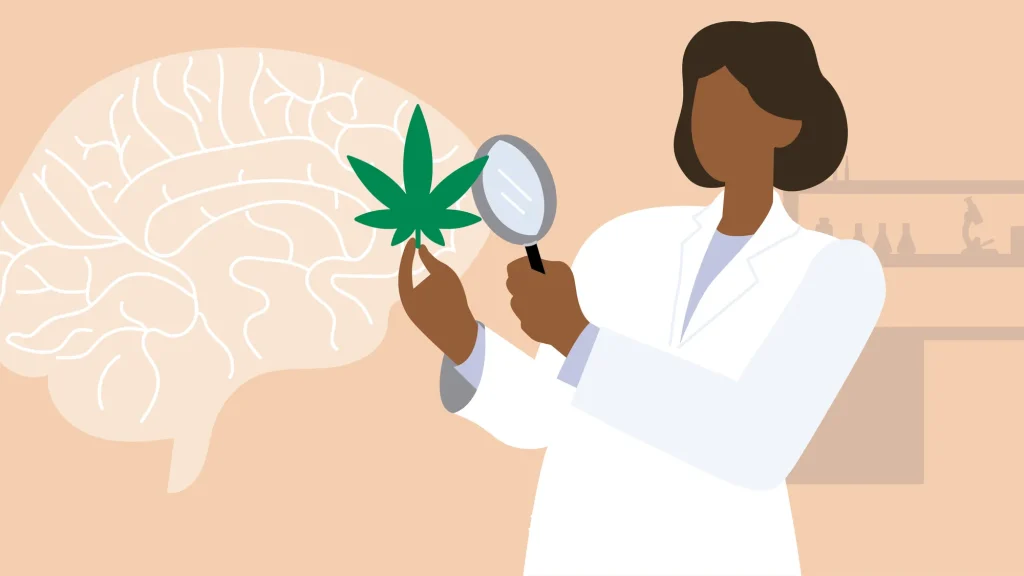The FDA has not approved any medications made from cannabis for the treatment of anxiety or other kinds of psychological disorders. Nonetheless, several studies have indicated that THC and CBD, two substances present in cannabis, may have some positive effects on mental health. For instance, there is some proof that CBD may be useful in treating addiction and anxiety. While any cannabis medication is suggested as a treatment for anxiety, more research is necessary. Despite this, people are still using THC as well as other cannabis-related substances to reduce their anxiety. One study found that half of medicinal marijuana users use it to lessen their anxiety symptoms.
Effect on Symptoms of Anxiety: Tetrahydrocannabinol (THC) and cannabidiol (CBD), two of the primary constituents of cannabis, have been associated with possible anxiety treatment benefits. The psychoactive ingredient in cannabis is THC. At low dosages, THC is associated with sensations of a feeling of happiness and friendliness. As more people explore cannabis for therapeutic use, many look to get deals on online weed orders to conveniently and affordably access products that may help with anxiety symptoms.
Diminished Indications of Additional Mental Illnesses
Cannabis use can dramatically lower self-reported levels of stress and sadness in the short term, according to research from Washington State University that was published in the American Journal of Affective Disorders. However, frequent use doesn’t seem to reduce symptoms over time, and it may even make depression worse in some people.
Pain Management
Cannabis may help with physical pain, especially for individuals who have neuropathic pain (pain from damaged nerves) or chronic pain. To determine how well marijuana relieves pain in comparison to other treatments, more research is required.
Enhanced Sleep
Research indicates that brief cannabis use may increase a person’s sleep duration. Some people may be able to sleep in sooner and wake up less frequently during the night with the help of THC and/or CBD.
THC’s effects are not risk-free, and frequent or prolonged usage has been linked to several possible negative effects.
Increased Rates of Psychiatric Disorders Marijuana self-medication among young people has been linked to increased rates of generalised anxiety, panic disorder, depression, obsessive-compulsive disorder (OCD), and schizophrenia, according to several studies.
Dependency on the Mind
The main issue with taking marijuana as a coping mechanism for anxiety is that it might lead to psychological dependence.
Prolonged Memory Loss
Long-term marijuana usage has been linked to memory loss, according to several studies. THC affects the hippocampus, a part of the brain involved in memory formation, which results in memory impairment.
An increase in the symptoms of anxiety
The adverse consequences of THC, such as dysphoria or panic, may be more likely to occur in people who are more prone to anxiety.
A Greater Tolerance
Tolerance to marijuana is possible. This indicates that the greater you consume it, the greater you will ultimately need to consume to acquire the same benefits that you formerly experienced.

